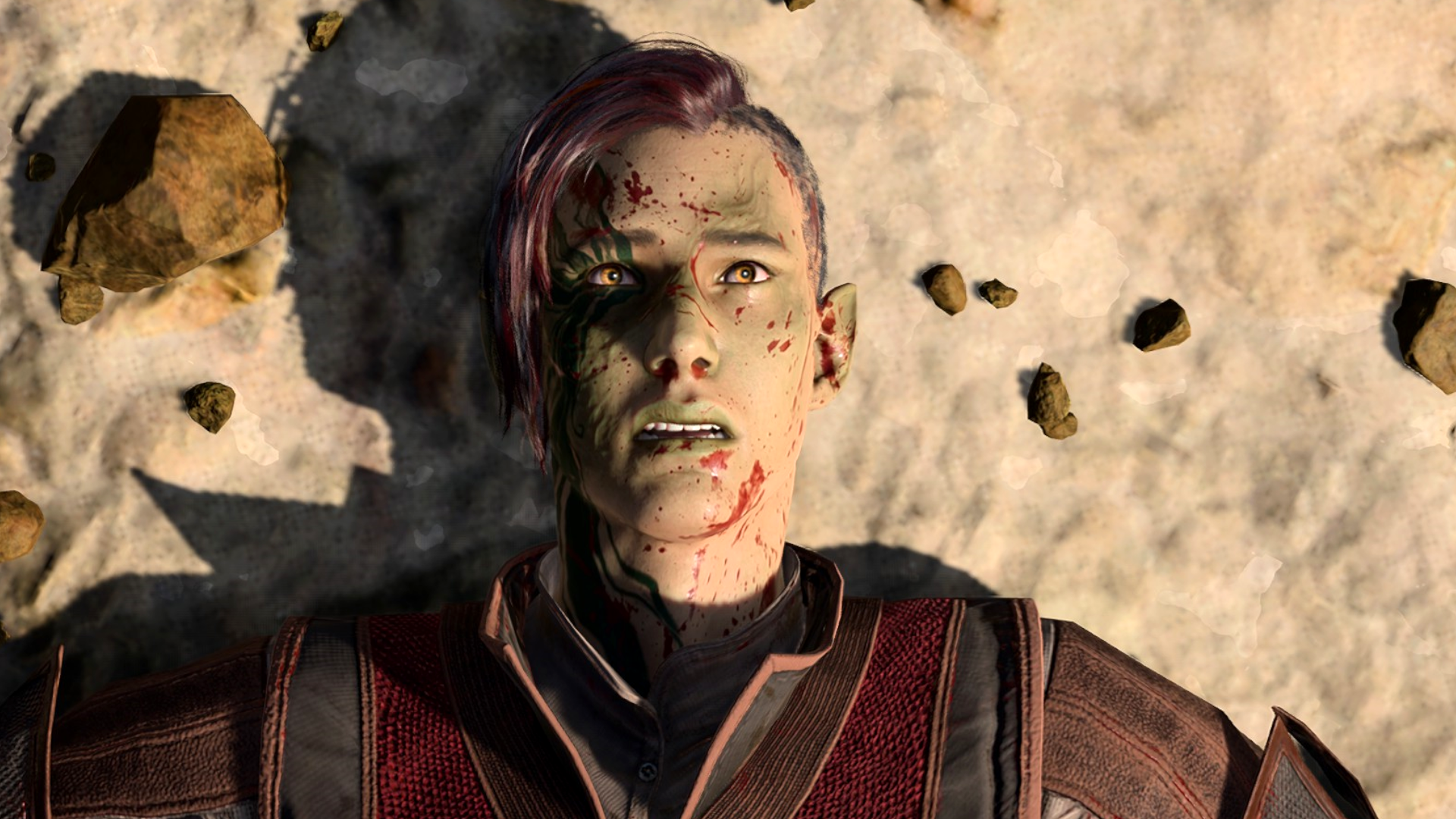
While prepping for my interview with Baldur's Gate 3's Amelia Tyler, I finally started my Dark Urge run. She'd mentioned that it'd be a great example of how she'd adjusted her narration, and my Dark Urge playthrough was long overdue, anyway.
This presented a problem, though. See, The Dark Urge is a funny little beast. There are two options—give into your violent impulses at every opportunity and bathe in blood, or fight your dark urges, defeating the circumstances of your unholy birth. I couldn't decide. So I figured I wouldn't decide at all.
Here are the ground rules:
- Whenever I was given an option to attack, intimidate someone, or give into my dark urges, I'd flip a coin.
- Heads meant cooler heads prevail. Tail meant I started blasting.
- Once I'd flipped that coin, I'd see that choice through to the best of my ability. So if I got a choice to back out, I wouldn't.
- Once I'd finished that choice, I could act of my own free will again.
I rolled up the half-elf T'wo Faciel. For his class, I chose archfey Warlock, because fae are changeable and unpredictable. Wild Magic sorcerer was a close second, but I hadn't played a Warlock yet, and I wanted to eldritch blast stuff to smithereens. I have simple tastes.
I mostly conceived this playthrough for a laugh, to get a story that'd be fun to write about. What I didn't expect, however, was a genuinely compelling layer of drama to be added to the Dark Urge experience. I became strangely attached to my indecisively violent half elf along the way, and fearful for the companions he was saddled with.
My bloody journey
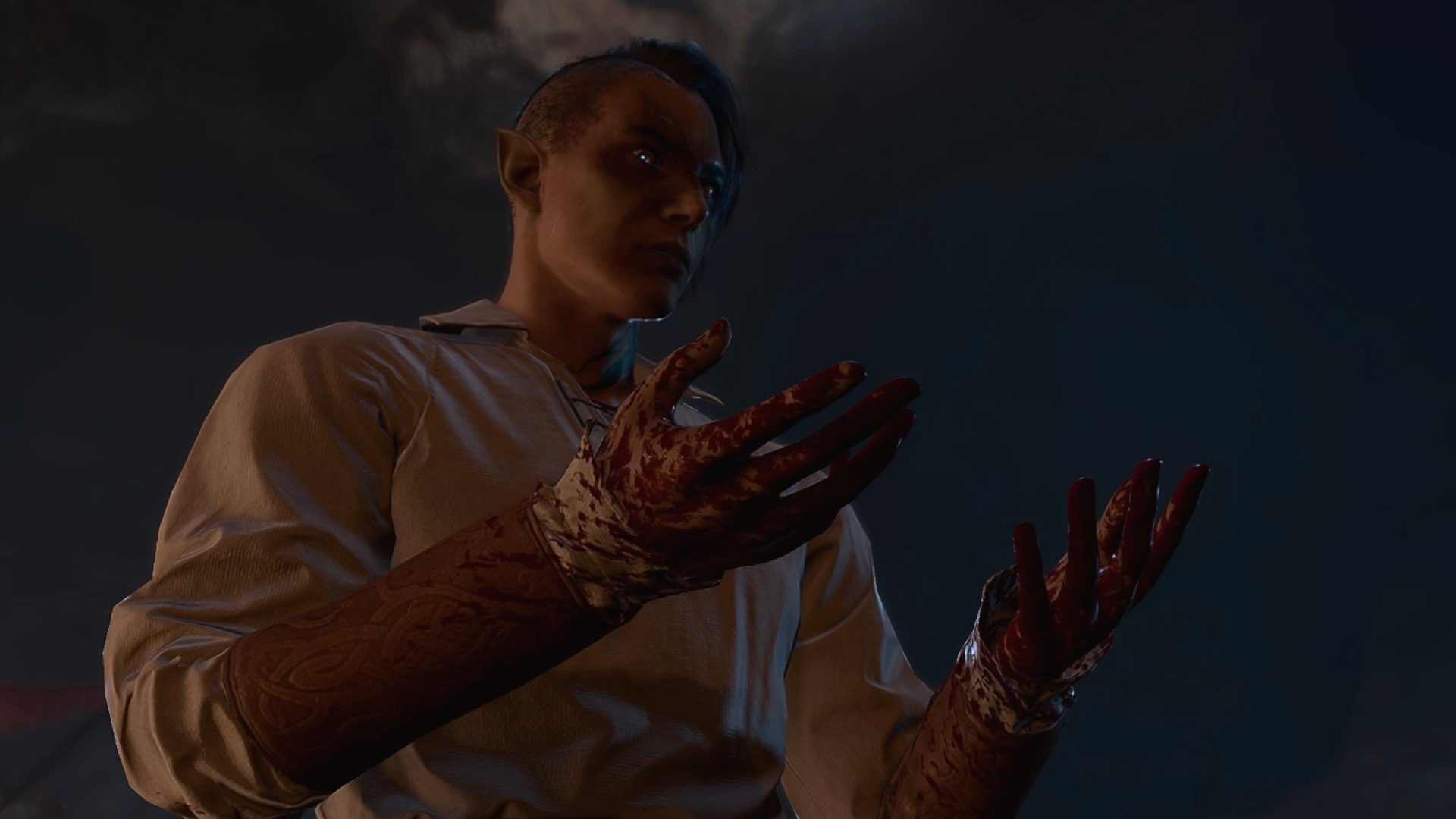
My first opportunity for blood presented itself on the Mind Flayer Ship. The Intellect Devourer, Us, proved a potential temptation—I flipped the coin to see whether I would riddle its brain with holes. Heads. I decided to tear Us out of its meat pocket and allow it to live—right up until two seconds later, where I was given an option to attack it. Tails. I made ready to blast my new friend into smithereens, but it ran away. Not disfigured, but betrayed by its saviour nonetheless.
This would set the tone. Often, I would be given a choice, flip a coin, and pursue it. Then a separate choice would present itself, and I'd be led down a completely different path, contradicting my earlier actions. An unexpected bonus—the coin dictated that I'd stick around to kill the cambion commander Zahlk. I won the fight and snagged his infernal sword for Lae'zel. This would prove handy since I'd be fighting. A lot.
Once I'd landed, I began to gather my party with some varying success. I picked up Shadowheart, Astarion, and Lae'zel—a good crew, seeing as they're the most tolerant to ultraviolence. Alas, when I encountered Gale at the teleportation sigil, the coin toss of fate made me chomp his hand clean off. Sorry Gale.
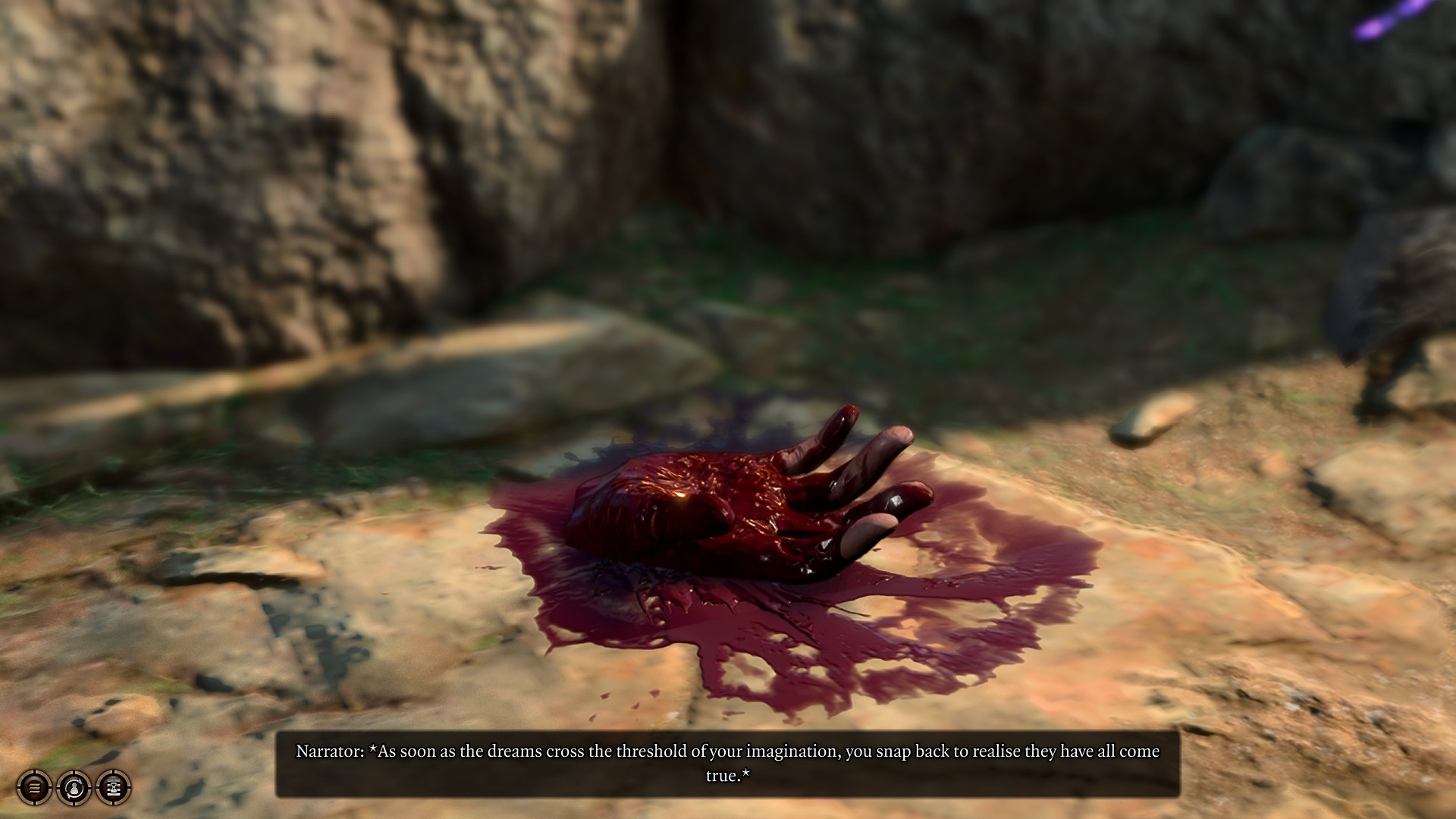
I also tried to attack Withers. It didn't work, which is good because I wanted to respec Shadowheart into a druid anyway. With Badgerheart now fully realised, everything else proceeded apace. Things were entertaining, but a little rote as I meandered about the Sword Coast slaying or parleying. The true fun didn't start until the druid camp.
See, when you first arrive at the grove, the druid's backup leader, Kagha, can be found interrogating a poor tiefling kid named Arabelle over a stolen idol. The Dark Urge has a choice to make Arabelle run, getting her bit by Kagha's viper.
I wish I could tell you the coin had mercy for children, but fate is indiscriminate, and the poor kid lay dead on the floor within moments. Usually this is the route you'd go with in an evil playthrough, going on to slaughter the whole grove with the goblins. But when I was given a chance to attack Kagha myself, the coin chose violence a second time. I'd killed Arabelle, but I was now fighting for justice on her behalf.
Attacking the druids here causes them to start brawling with the tieflings up above—though combat happens much faster between NPCs. In the spirit of seeing where this'd go, I sent Astarion to join the fray topside, effectively 'pausing' that combat so I could put my full weight behind the tieflings. Once I'd dealt with Kahga, of course. It went pretty well.
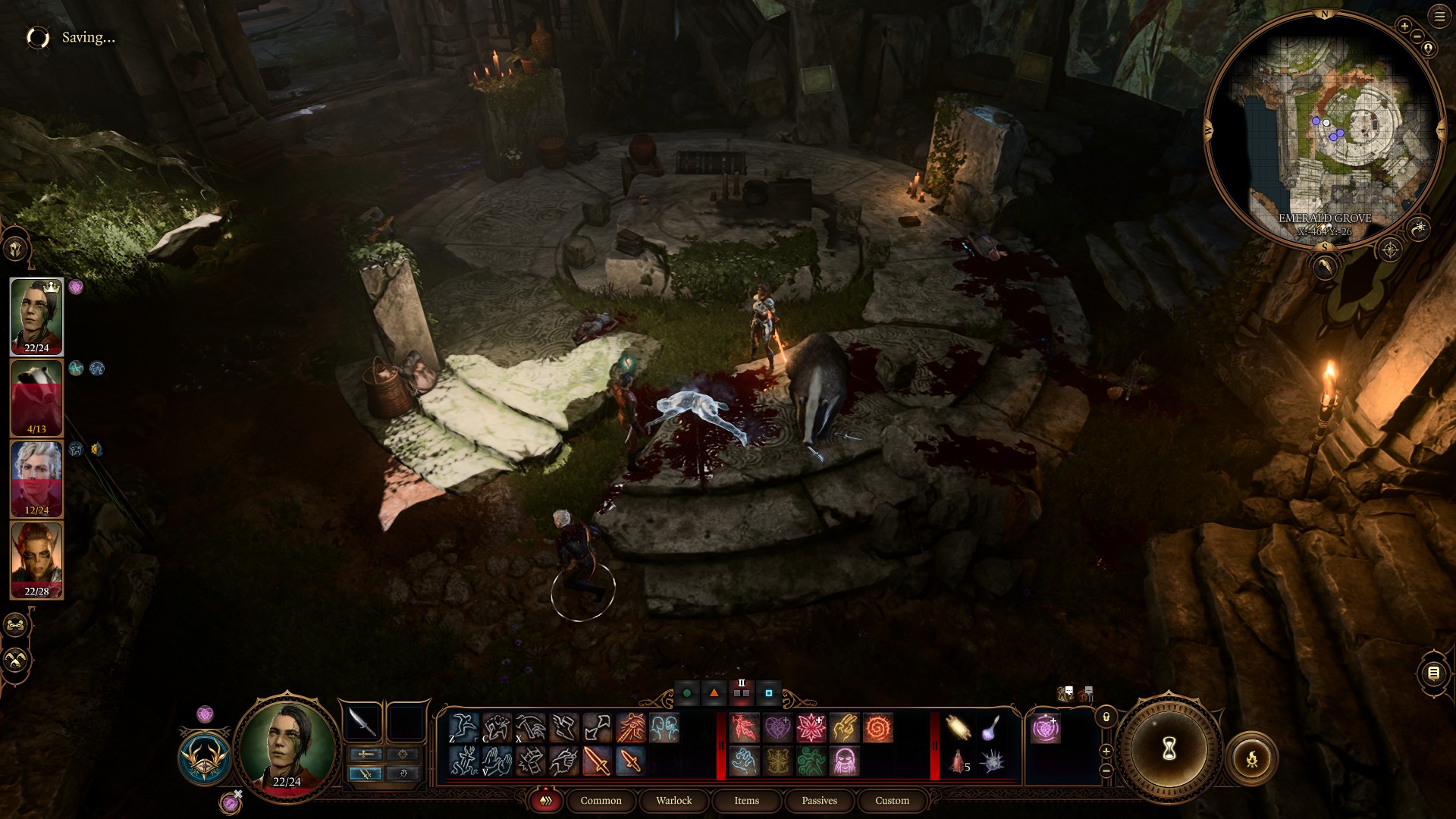
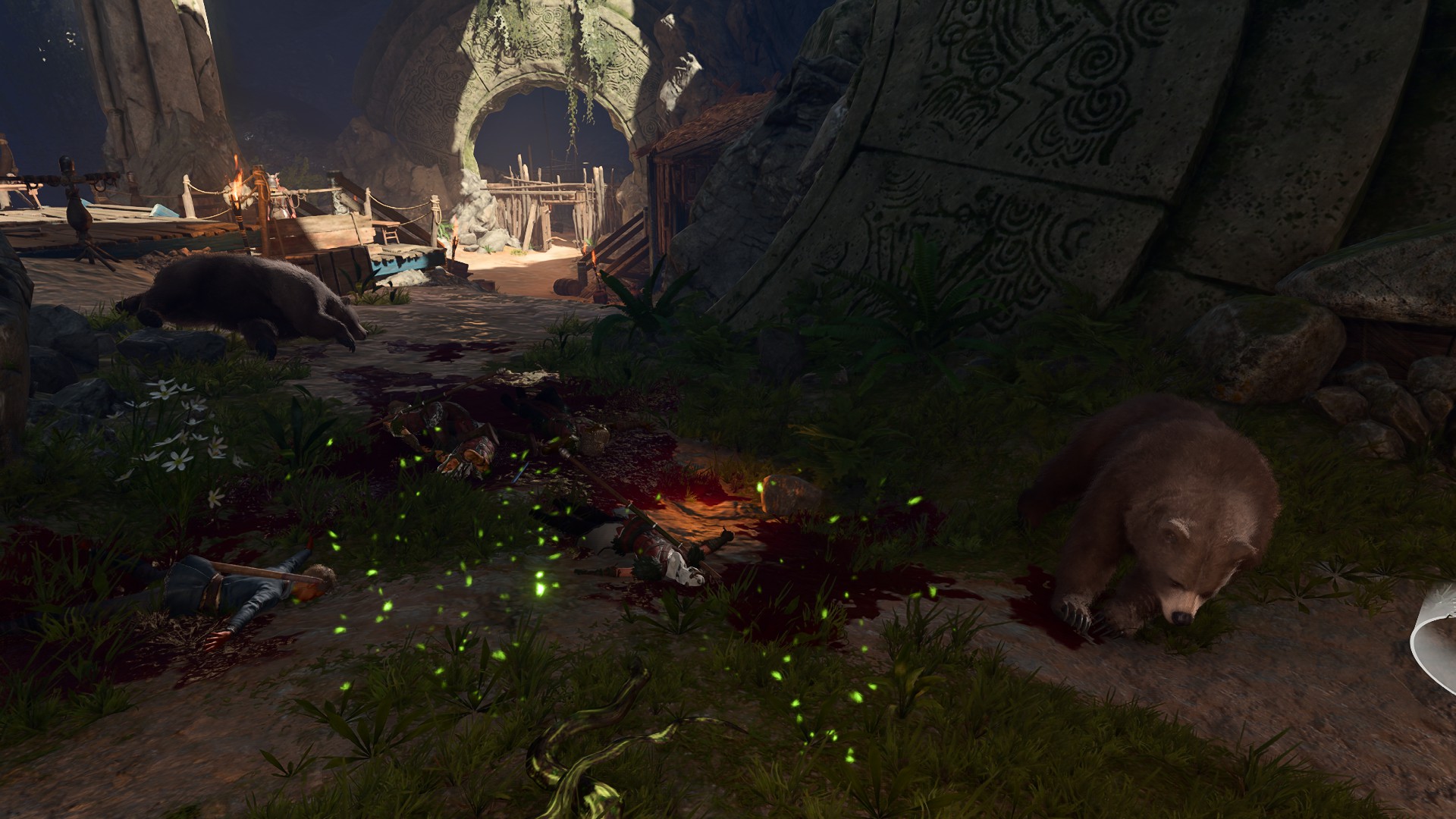
This weirdness followed me all the way to Karlach. The coin demanded I slay her for Wyll's sake—don't blame me, blame fate—but then it also made me murder the "paladins" hunting her. Nobody won that day. The most interesting outcome, however, spawned from the goblin camp, leading to an outcome I hadn't thought possible.
Bear diplomacy
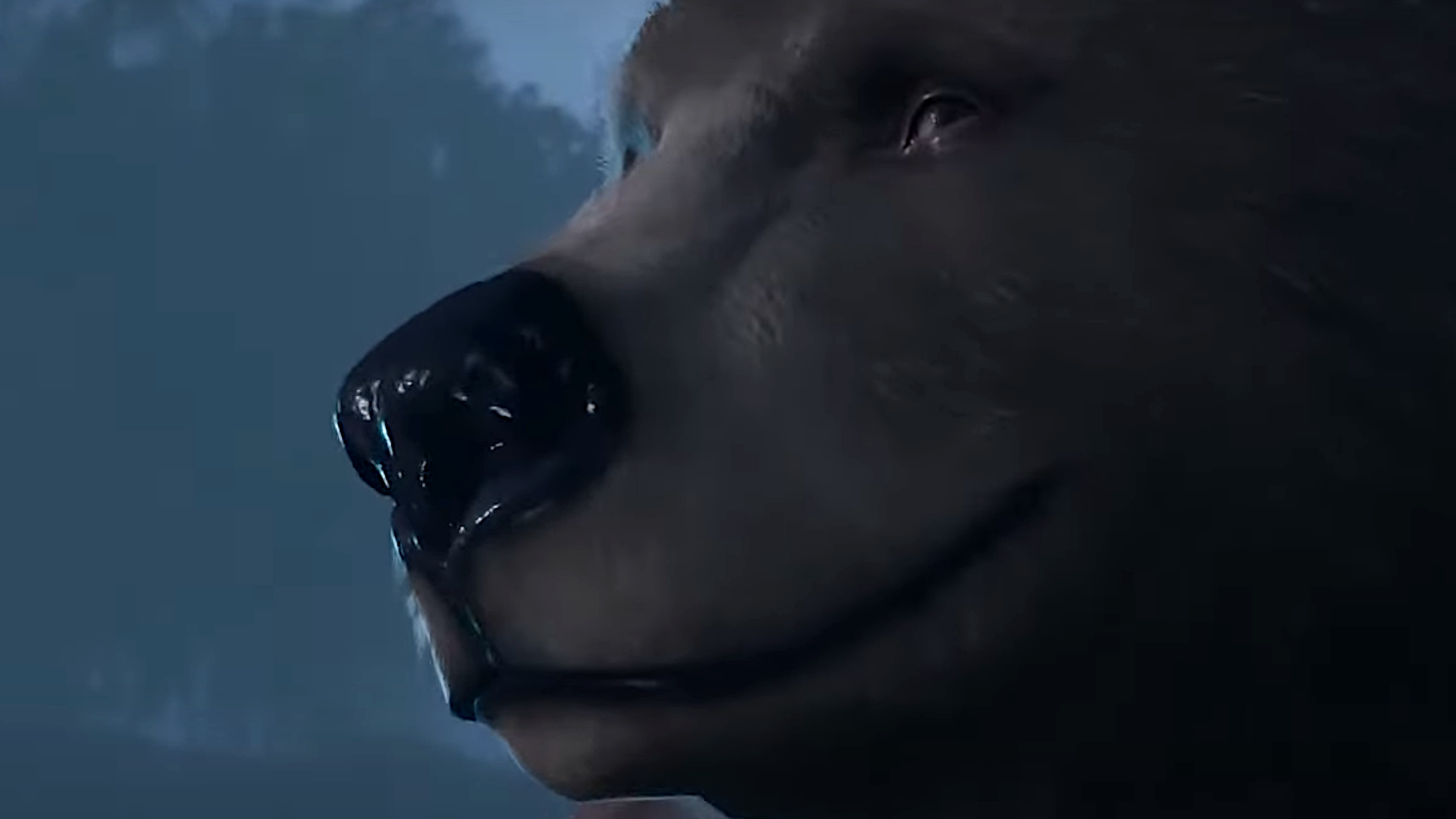
When I entered the goblin fortress, I was presented with a choice to either go quiet or go loud—the coin wanted blood. So began my killing spree, as my butchery near the gate had turned the whole fortress hostile. Understandable.
Still, I wondered, what would happen if I followed through? I went and rescued the druidic leader Halsin, kept the truth of my grove massacre hidden (once more, thanks to the coin), and finished offing the goblin leaders.
When I returned to the grove, Halsin was there, and weirdly composed about his dead friends. I presume the tieflings had told him about Arabella's untimely death (thankfully, there weren't any witnesses alive to let him know it was my fault), and he seemed resigned to the druid's fate. He pinned it on his absence, saying he wasn't there to guide them.
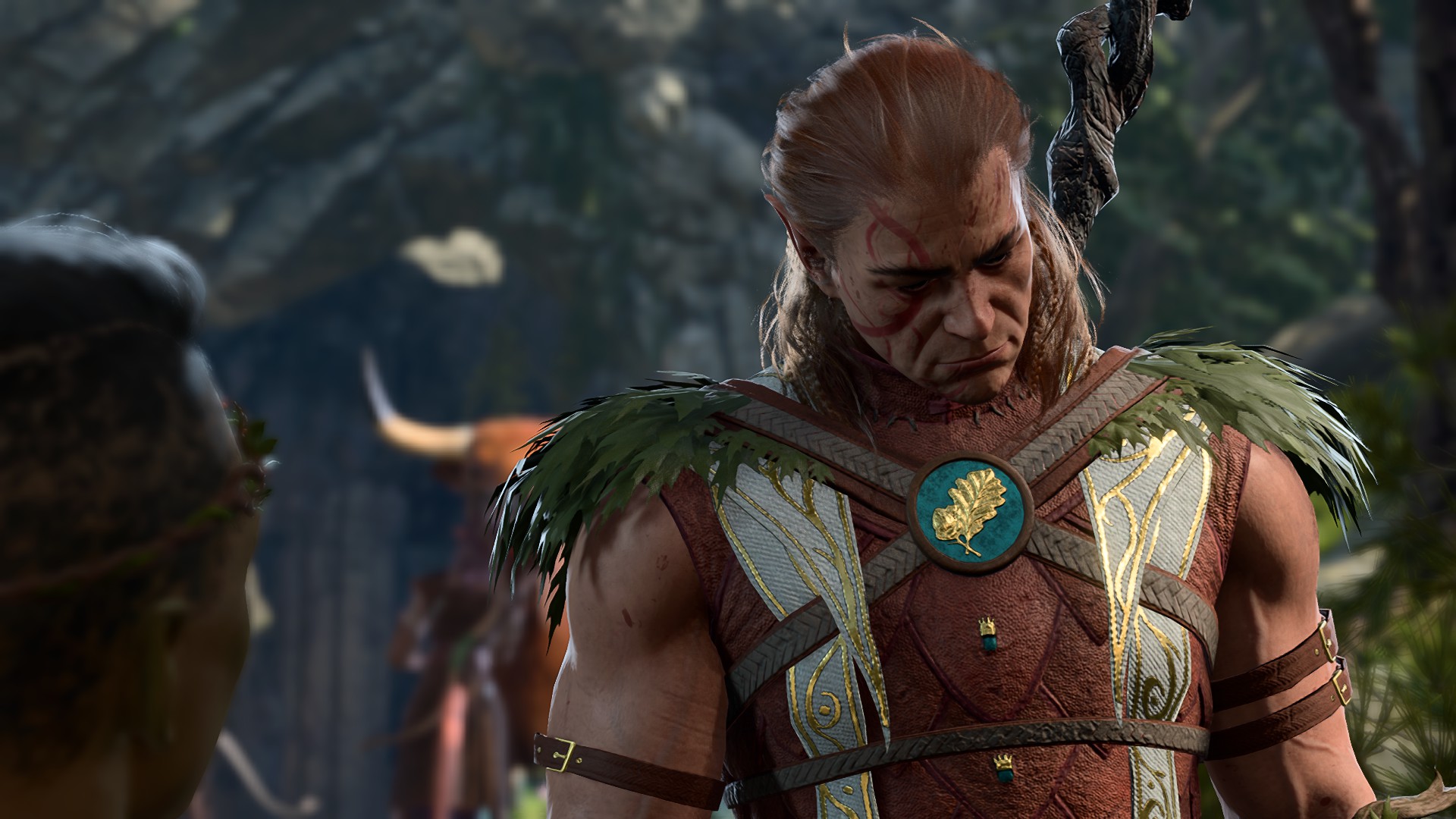
Up until this point, I'd assumed that killing the druids would've led to Halsin seeking vengeance. But the whims of fate had made an entirely new kind of playthrough, one I would've never chosen myself. Far more complicated and weird than the intended path. Chaos is inconsistent, but boy it sure is interesting.
I also genuinely began to understand how the Dark Urge felt for one simple reason: I had no control over whether I hurt my friends.
Murder Nuzlocke
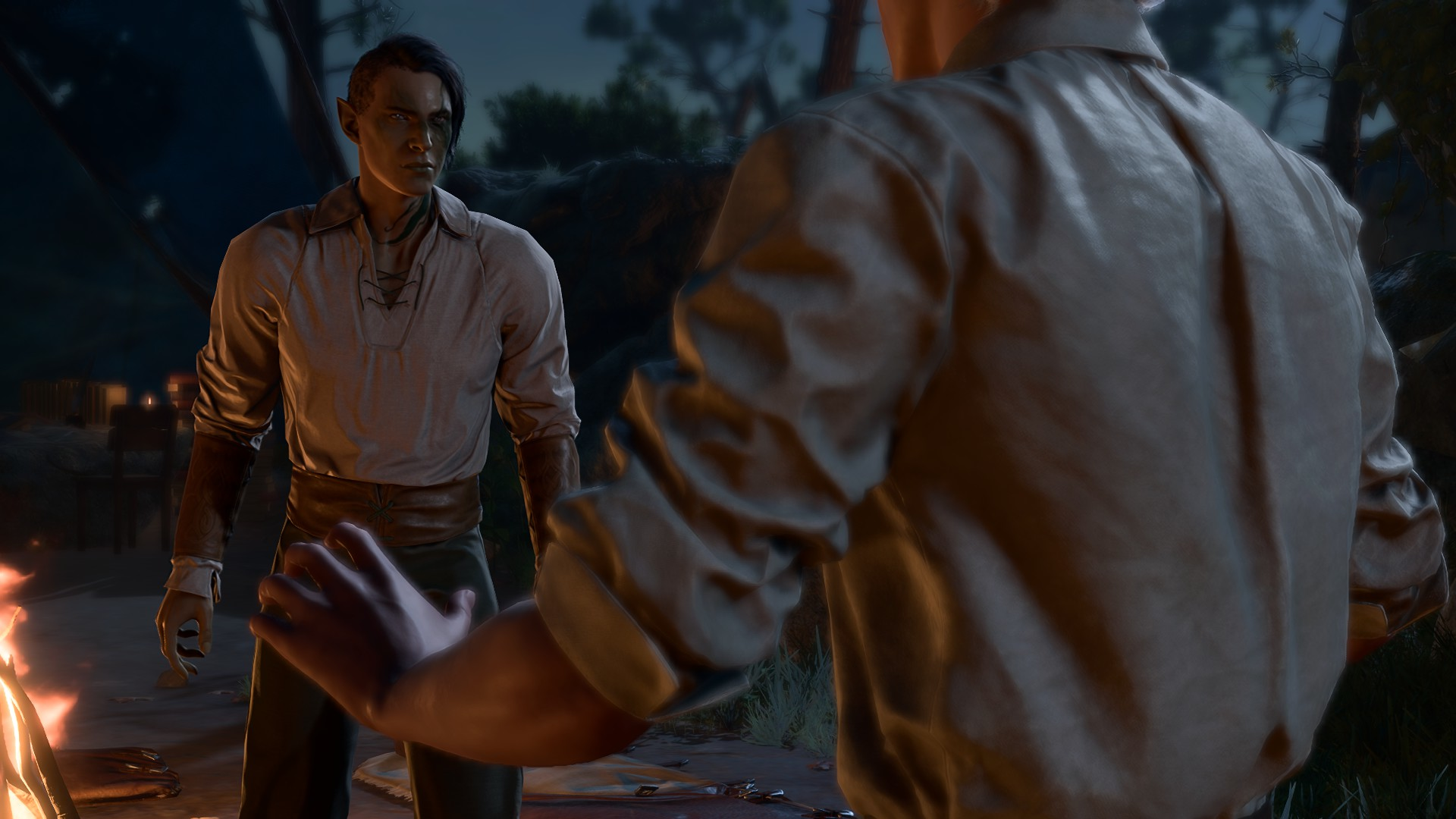
In Baldur's Gate 3, there are several opportunities to attack and permanently kill your companions. While Gale and Karlach met with an untimely death—and I am sad they're both dead in the T'wo Faciel timeline—I never got to use them, so I never felt like I'd missed out on anything. Astarion and Lae'zel, though? I'd grown fond of them as battle siblings, and you absolutely get a chance to murder both of them.
Astarion tries to bite you in the middle of the night, and you have a choice to run a stake through his heart—similarly, Lae'zel becomes convinced you're all turning into mind flayers and puts a knife to your throat, and you get a chance to attack her in response. Mercifully, the coin chose peace both times, but there's an alternate universe somewhere in which this playthrough became me, Shadowheart, Wyll, and a hireling.
While neither of these moments are inherently Dark Urge choices, they became Dark Urge choices because I was never in direct control. Any time my companions provoked me, they genuinely risked T'wo Faciel snapping and putting them six feet under.
I don't know if I think this is the best way to play The Dark Urge, but it's definitely my favourite. What started as a silly experiment came close to the ideal fantasy. When the stakes are high, giving your murderous impulses over to the whims of fate is pretty compelling. T'wo Faciel was an actual danger to himself and everybody around him, not because I chose to lean into his dark side—but because neither of us had control. Death and destruction were a single coin flip away.
While I'm returning to my evil necromancer lady's playthrough for now, I'll definitely be picking up my Dark Urge run later. I've only started pushing into the last third of Act 1, and I've already slain two of my potential party members, had close calls with two more, butchered a bunch of druids and then made nice with their leader, saved—and then doomed—a gnome on a windmill, and made allies with some Ogres I'll absolutely forget to deploy. My Dark Urge is chaos, and it cannot be contained.







